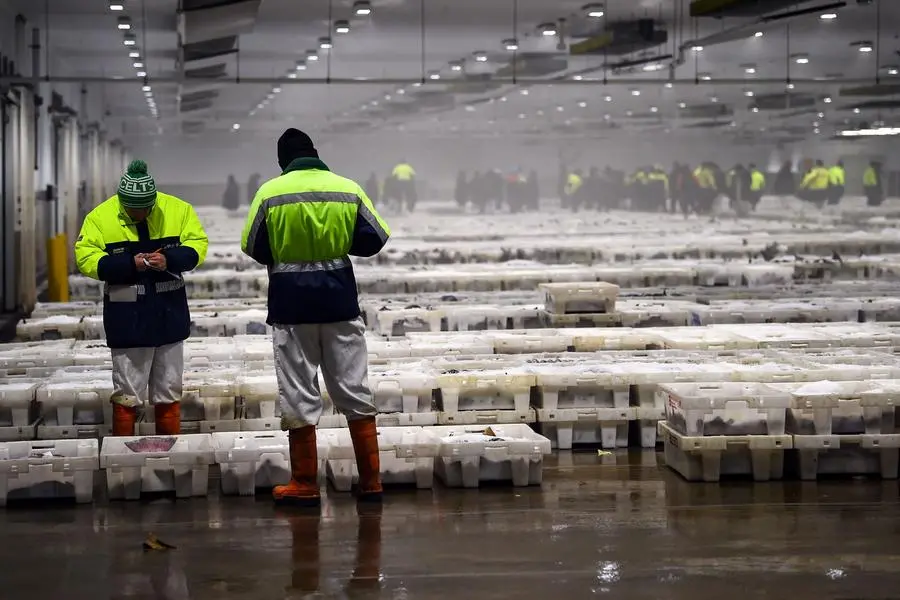PHOTO
New checks on goods entering Northern Ireland from mainland Great Britain come into force this weekend as part of a post-Brexit trade deal between the UK and EU.
A system of green and red lane port checks for products arriving in Northern Ireland from England, Scotland and Wales begins on Sunday.
The aim is to stop goods entering the European single market by the back door, given the open border with EU member Ireland -- a key plank of a 1998 peace deal ending violence over British rule in Northern Ireland.
But unionists decried the step as an internal "border", threatening Northern Ireland's place in the wider UK.
"On Sunday it will be confirmed that Northern Ireland has got a border in the Irish Sea," said Sammy Wilson, a veteran MP with the largest pro-UK party the Democratic Unionist Party (DUP).
"We are going over the next year to see physical border checkpoints built... to mark Northern Ireland as being part of the EU rather than being fully part of the United Kingdom," Wilson told BBC radio.
From Sunday, lorryloads of goods destined for the Republic of Ireland or the wider EU will use a red lane with obligatory customs declarations and some checks to comply with EU single market rules.
But goods bound for consumers in Northern Ireland will use a green lane with minimal paperwork and checks.
- Political uncertainty -
In February last year, the DUP withdrew from the devolved government in Northern Ireland because of post-Brexit trading rules they said made a united Ireland more likely.
The Northern Ireland Protocol, agreed separately from the wider trade and cooperation deal between London and Brussels, drove a wedge between Northern Ireland and the rest of the UK, the unionists argued.
To ease internal trading bottlenecks, parts of the protocol were renegotiated into an amended UK-EU deal -- the Windsor Framework -- but several pro-UK parties said the framework still undermines Northern Irish sovereignty.
The DUP refused to return to government, paralysing the region's power-sharing institutions at the Stormont Assembly and fuelling political uncertainty in Northern Ireland.
Last year Sinn Fein, the former political wing of the paramilitary IRA, replaced the DUP as the biggest party in the assembly in a historic first.
The DUP were also supplanted by Sinn Fein as the dominant force in local government at council elections earlier this year.





















